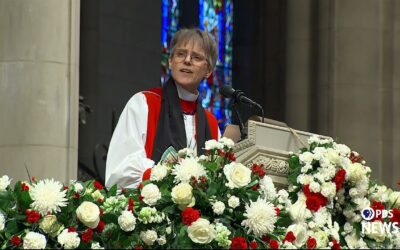Proof That the Creation Account in the Bible Is Exactly as Stated: Why Genesis Describes a Literal Six-Day Creation
The opening chapters of Genesis have long been a focal point of debate—both within and outside Christian circles. Does the Bible mean what it says when it describes the six days of creation? Were these literal 24-hour periods, or should we interpret “day” figuratively? By examining the Hebrew text and the context of the creation account, we will demonstrate that the Genesis creation narrative should be understood exactly as it is written—a series of six literal, consecutive 24-hour days. Moreover, we will show why this understanding is foundational to a robust biblical worldview.
The Hebrew Word “Yom” and Its Literal Meaning
At the heart of the discussion lies the Hebrew word “yōm” (יום), commonly translated as “day.” In Hebrew, as in English, a word can carry multiple meanings depending on context. While “yōm” can sometimes refer to an extended period (e.g., “the day of the Lord”), its primary meaning refers to a literal 24-hour day.
In Genesis 1, the context overwhelmingly supports this primary meaning. Consider the repeated phrase that defines each day of creation: “And there was evening and there was morning, the [nth] day.” This rhythmic pattern, repeated six times (Genesis 1:5, 1:8, 1:13, 1:19, 1:23, 1:31), clearly delineates a cycle of evening and morning—the standard markers of a literal day.
Furthermore, whenever “yōm” is used in conjunction with a numerical adjective in the Old Testament (e.g., “the first day,” “second day”), it always refers to a literal 24-hour period. This consistent usage leaves no room for the idea of vast geological ages or metaphorical interpretations in Genesis 1.
Evening and Morning: Context Is Key
The phrase “evening and morning” (ערב בקר, “êreb bōqer”) is another crucial clue. In Hebrew culture and language, “evening” and “morning” are used to signify the boundaries of a day. These terms are never used in Scripture to describe ages or indefinite periods of time.
For example, in Daniel 8:14, the phrase “evening and morning” clearly refers to literal daily sacrifices. The uniformity of this terminology reinforces the interpretation that the “days” in Genesis 1 are ordinary days.
God’s Rest on the Seventh Day
Another key to understanding the literal nature of the creation account is found in Exodus 20:8-11, where the Sabbath commandment is rooted in the creation week:
“For in six days the LORD made heaven and earth, the sea, and all that is in them, and rested on the seventh day. Therefore the LORD blessed the Sabbath day and made it holy” (Exodus 20:11, ESV).
This passage explicitly ties the pattern of human work and rest to God’s work of creation. If the “six days” were metaphorical or symbolic, the basis for the Sabbath commandment would be nonsensical. The Israelites worked six literal days and rested on the seventh literal day, reflecting God’s activity during creation.
Why Taking Genesis Literally Matters
- Theological Integrity: Denying the literal six-day creation undermines the authority of Scripture. If the plain reading of Genesis 1-2 can be dismissed or reinterpreted to fit secular theories, what prevents other parts of Scripture from being similarly redefined? The creation account is foundational to the entire biblical narrative, including doctrines of sin, redemption, and the nature of God Himself.
- The Character of God: Genesis 1 presents God as omnipotent and purposeful, creating the universe by His Word (Psalm 33:6, 9). A literal understanding underscores God’s power to create instantly and perfectly. Stretching the creation timeline to accommodate evolutionary theories diminishes God’s sovereignty and the miraculous nature of creation.
- The Gospel Connection: The New Testament connects the historical accuracy of Genesis with the work of Christ. Romans 5:12-21, for example, compares Adam’s literal, historical fall to Christ’s literal, historical redemption. If Adam and Eve did not exist as real people created on the sixth literal day, the foundation of the gospel begins to crumble.
- Evangelism and Apologetics: Compromising on the literal interpretation of Genesis weakens our ability to defend the faith. 1 Peter 3:15 commands us to give a reason for the hope we have. If Christians accept evolutionary or old-earth ideas, they risk presenting a God who is inconsistent with His Word.
Addressing Common Objections
- “Science Proves an Old Earth”: While secular science often claims billions of years, the assumptions underlying these conclusions are not neutral. Radiometric dating methods, for example, presuppose constant decay rates and initial conditions that are unknowable. Conversely, young-earth creationists present compelling evidence for a young earth, including the decay of Earth’s magnetic field and the discovery of soft tissue in dinosaur fossils.
- “The Genesis Account Is Poetry or Allegory”: The structure of Genesis 1 is not poetic but historical narrative. Hebrew poetry relies heavily on parallelism, which is absent here. Instead, Genesis employs the grammatical structures of straightforward prose.
- “The Days Are God’s Perspective, Not Ours”: This claim fails under scrutiny because the text of Genesis is written from the perspective of someone standing on Earth. The mention of “evening and morning” aligns with the human experience of a day, not an undefined divine perspective.
- “Genesis Is Compatible with Evolution”: The Bible’s teaching on creation directly contradicts evolutionary theory, which depends on death and mutation as mechanisms of development. However, Scripture is clear that death entered the world only after Adam’s sin (Romans 5:12). Evolutionary timelines undermine this key biblical doctrine.
Why Believing the Literal Creation Account Strengthens Faith
Accepting the Genesis creation account at face value allows believers to:
- Strengthen Confidence in Scripture: Trusting God’s Word in Genesis reinforces faith in its accuracy elsewhere, including its promises and prophecies.
- Highlight God’s Glory: The miraculous, instantaneous nature of creation points to the unmatched greatness of God.
- Encourage Evangelistic Boldness: When Christians are clear and uncompromising about the authority of Scripture, their testimony becomes more compelling.
Resources for Further Study
- Strong’s Exhaustive Concordance
- Englishman’s Hebrew Concordance of the Old Testament
- The Genesis Record by Dr. Henry Morris
- The Answers Book by Ken Ham
- Creation and Time by Dr. Hugh Ross (critical review of old-earth interpretations)
- The Defender’s Study Bible by Dr. Henry Morris
- BDAG Greek Lexicon (for understanding parallel concepts in the New Testament)
- The Institute for Creation Research (ICR)
- Answers in Genesis
Conclusion
The creation account in Genesis is clear: God created the heavens and the earth in six literal, consecutive 24-hour days. This interpretation is not only supported by the Hebrew text but is also essential to preserving the integrity of Scripture. By standing firm on the plain reading of Genesis, believers honor God’s Word and proclaim His power, wisdom, and majesty to a world desperate for truth.
Let us, therefore, commit to taking God at His Word and defending the faith with boldness and humility. The creation account is not merely a theological side issue; it is foundational to understanding who God is, who we are, and why we need salvation through Jesus Christ.




0 Comments